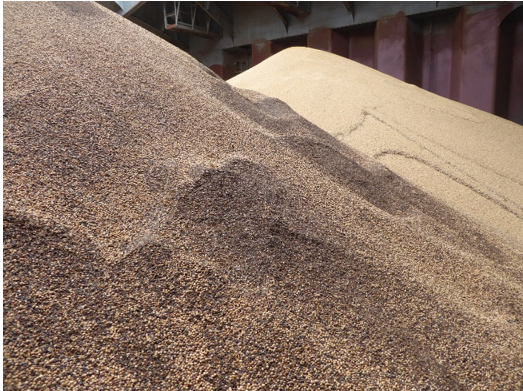Brazil – Heavy rainfall has led to port congestion and risk of delays
Due to the recent seasonal heavy rainfalls, a traffic jam started forming; leaving trucks loaded with soya beans stuck fast in the mud and unable to advance or return to point of origin. This has disrupted the supply chain to the ports and has led to congestion at ports exporting soya beans.

Conditions at the ports
The congestion currently affects the river port of Santarém and the ports of Vila do Conde, Baracarena and Belén. As a result, operators are now diverting vessels to ports in the south-eastern and southern regions which may lead to congestion at these ports in the next few weeks.
The National Department of Transport Infrastructure reports that the traffic jam is now clearing and that trucks are being pulled through the mud with the help of bulldozers and tractors. The traffic is expected to resume providing weather conditions improve. However, further rains are forecast for the next weeks and the congestion is likely to last the entire Brazilian summer albeit to a much lesser extent, according to industry sources.
Recommendations
Gard’s Members with vessels fixed to load soya beans at Brazilian ports are advised to take note of the above and to seek the most up to date information from their local ship’s agent and to ensure that:
Vessels arriving at congested ports should carefully plan the taking on board of provisions, fresh water and fuel and be prepared either to wait at anchor for prolonged periods or to be diverted to other ports. Particular attention must be paid to the need to renew the vessel’s documents, such as Ship Sanitation Certificate, which are not obtainable at all port.
While there is, so far, no indication that the delays has led to significant deterioration in the quality of the soya beans, Masters and crews should increase their vigilance during cargo operations and visually monitor the condition of the cargo being loaded.
Owners and operators concerned about the cargo condition, eg because of discoloured beans or significant temperature variations (say 5 to 10°C) and/or elevated temperatures (which may be indicative of self-heating already underway), should consider engaging experienced surveyors to assist the Master with cargo related matters.
As Brazil is currently in the rainy season, the crew should increase the weather lookout and ensure that loading equipment is removed from within the cargo holds and hatch-covers closed in a timely fashion to avoid cargo being affected by sudden rainfalls, which are particular common at ports in the Northern Arc.
If the Master is in any doubt about the condition of a soya bean cargo at any point during loading or during the voyage, or in the event of complaints at the discharge port, Gard should be contacted immediately.
Source: Gard (http://www.gard.no/web/updates/content/22908876/brazil-heavy-rainfall-has-led-to-port-congestion-and-risk-of-delays)
HEADLINES
- Do shipping markets want Biden or Trump for the win?
- All 18 crew safe after fire on Japanese-owned tanker off Singapore
- Singapore launching $44m co-investment initiative for maritime tech start-ups
- Cosco debuts Global Shipping Industry Chain Cooperation Initiative
- US warns of more shipping sanctions
- China continues seaport consolidation as Dalian offer goes unconditional